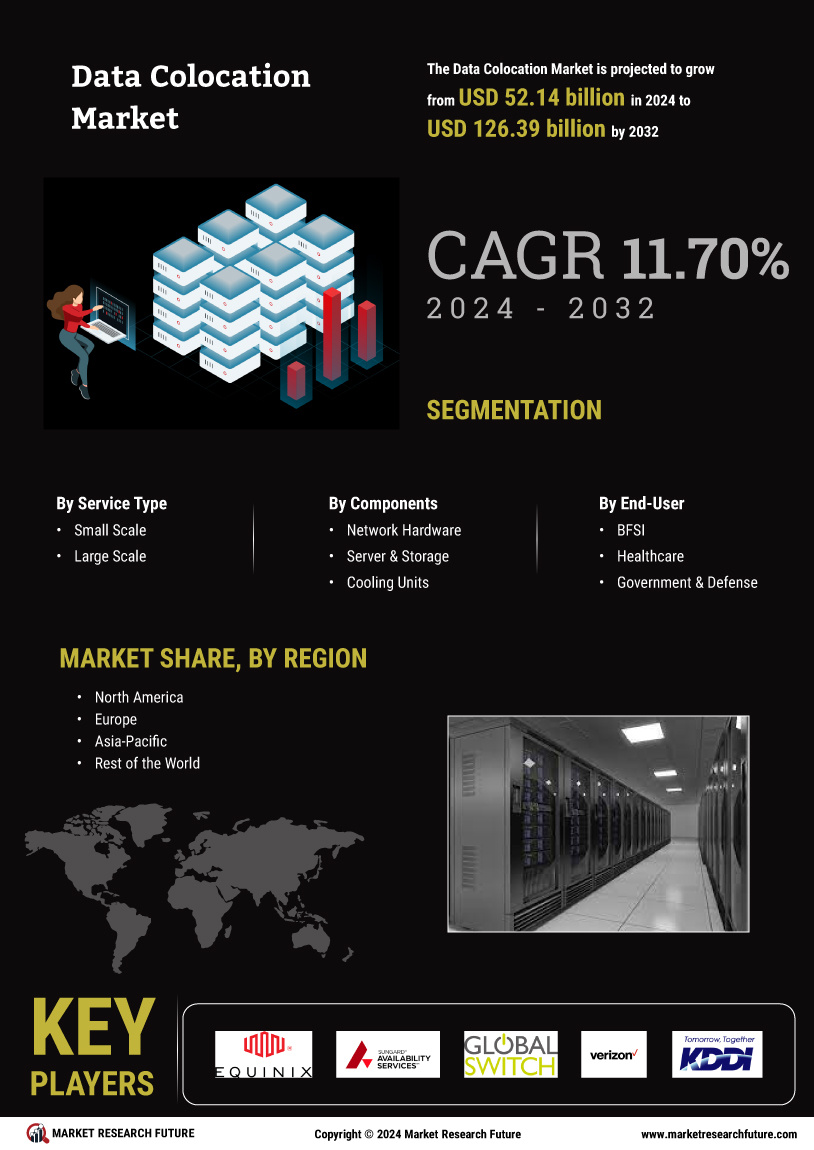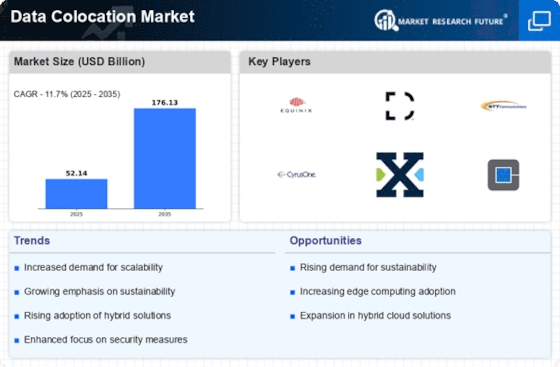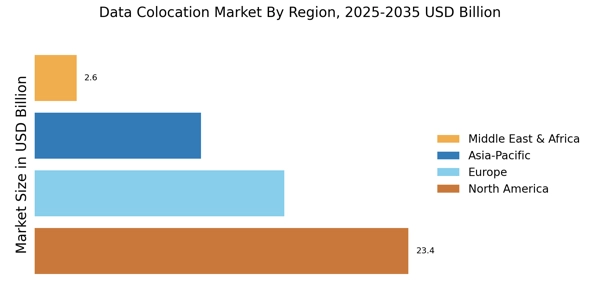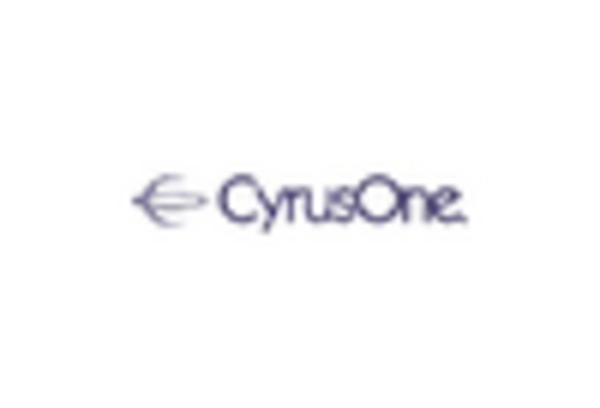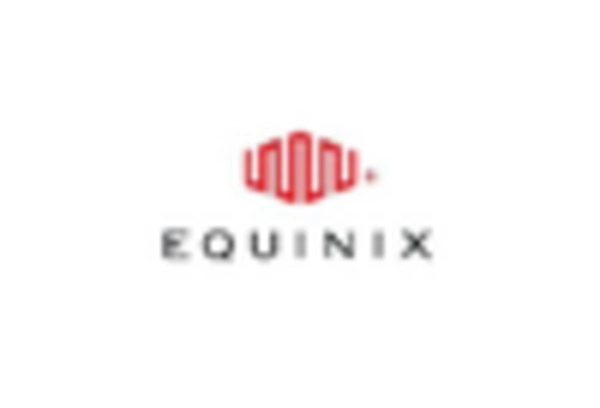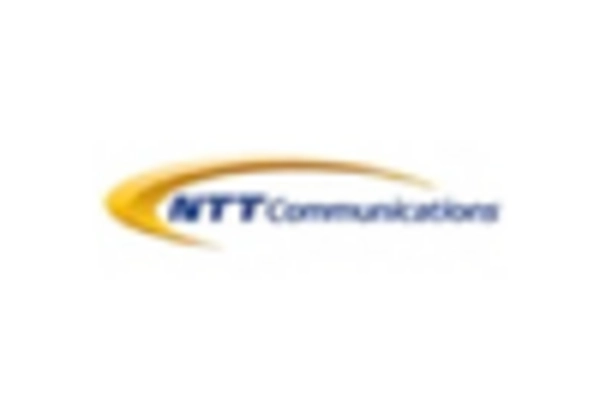Rising Data Generation
The exponential increase in data generation across various sectors appears to be a primary driver for the Data Colocation Market. With the proliferation of IoT devices, social media, and digital transactions, organizations are producing vast amounts of data. According to recent estimates, the total amount of data created globally is expected to reach 175 zettabytes by 2025. This surge necessitates efficient data storage solutions, prompting businesses to seek colocation services that offer scalability and reliability. As companies strive to manage their data effectively, the demand for colocation facilities that can accommodate this growth is likely to rise, thereby propelling the Data Colocation Market forward.
Enhanced Disaster Recovery Solutions
The increasing awareness of the importance of disaster recovery and business continuity planning is driving growth in the Data Colocation Market. Organizations are recognizing that colocation facilities provide robust disaster recovery solutions, ensuring data redundancy and minimizing downtime. With the potential for natural disasters, cyber threats, and other disruptions, businesses are prioritizing the need for reliable backup systems. The colocation model offers geographically diverse locations, which can be crucial for effective disaster recovery strategies. As companies seek to safeguard their data and maintain operational resilience, the demand for colocation services is likely to rise, further fueling the Data Colocation Market.
Cost Efficiency and Resource Optimization
Organizations are increasingly recognizing the cost benefits associated with data colocation, which serves as a significant driver for the Data Colocation Market. By outsourcing data center operations, companies can reduce capital expenditures related to infrastructure, maintenance, and energy consumption. Research indicates that businesses can save up to 30% on operational costs by utilizing colocation services instead of maintaining in-house data centers. This financial incentive encourages enterprises to adopt colocation solutions, allowing them to allocate resources more effectively. As the need for cost efficiency continues to grow, the Data Colocation Market is poised to expand, attracting more clients seeking to optimize their IT budgets.
Regulatory Compliance and Data Sovereignty
The evolving landscape of data protection regulations is influencing the Data Colocation Market significantly. Organizations are increasingly required to comply with stringent regulations regarding data privacy and security, such as GDPR and CCPA. This compliance often necessitates the use of colocation services that can provide the necessary infrastructure to meet these legal requirements. Furthermore, the need for data sovereignty, where data must be stored within specific geographical boundaries, is prompting businesses to seek local colocation providers. As regulatory pressures mount, the Data Colocation Market is expected to experience growth as companies turn to colocation solutions to ensure compliance and mitigate risks.
Technological Advancements in Infrastructure
Technological advancements in data center infrastructure are playing a pivotal role in shaping the Data Colocation Market. Innovations such as virtualization, automation, and energy-efficient technologies are enhancing the capabilities of colocation facilities. These advancements allow for improved performance, scalability, and sustainability, making colocation an attractive option for businesses. The integration of advanced cooling systems and renewable energy sources is also contributing to the appeal of colocation services. As organizations seek to leverage cutting-edge technology to enhance their operations, the Data Colocation Market is likely to benefit from increased adoption of these modernized solutions.
